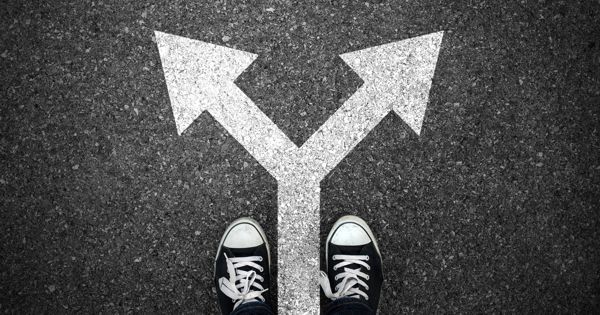
If you don’t make a choice, you are leaving it up to a chance, or fate. Kismet. And taking a chance is nowhere near effective as making a decision. It might be easier, at the time, but really it’s not. Not at all. When we leave it up in the air—to leave it to chance—that in itself is a decision; not one to be taken lightly, and one that can only lead to indecision.
By J.G. Lewis
What will I do today? This week?
Each day I ask this of myself. I ask this of others—daily, hourly—each second of every minute I ask questions, and with each question comes a decision.
We all make decisions all the time. Continually. Where to go, what to do, what to buy, whether to stay, what to say, how to say it, how to ask a question—all decisions. Each and every act, goal, accomplishment or failure, begins with a decision. How can I be sure the decisions I make are right, or proper, or ethical…even moral?
I can’t.
I can try. I can leverage all my knowledge and experience, and hope, and plan, but even then I can’t be sure the decisions I make, at that time, are correct. I am like everybody else—we all struggle with decisions. Many (or even most) we make involve someone else. In fact, many of the ones we make must function, or cooperate, or align, with decisions made by others. And that is hard. Even the simple choices we must make can be hard.
Every decision is one of hundreds of inter-connected, though seemingly unrelated, decisions made each day. Life is a cumulative series of decisions.
They impact the lives of those around you; those you love or those who, just by their nature of being where they are or what they are, are just there. Every day we make decisions. You decide how you will be viewed, how you will be remembered, how you will be accepted, or how you will accept others. All decisions.
We wake and walk upon each decision we make.
Some (in fact most) are irreversible; resolution is not even in your hands. And the decisions made by others may possibly be the most difficult decisions to deal with. You are forced, without having to decide, to deal with the consequences you had never intended.
One choice leads to another, and there is always the danger of collateral damage. And if we don’t question the ones made by others, we wonder: why they did that, why they said that, why they left, or let you go? All are questions fueled by decisions, and decisions made without your input. Mainly they are made with little care or without concern for you. Then again, it’s not the actual decision that hurts, as much as it’s how you react to it. If you don’t react properly, there is certain to be conflict.
Decisions can lead to arguments, as much as agreement, or conclusion, or worry.
Without decisions we do little, or nothing, to contribute to this grand parade we call life. Think about it. There, right there, that’s a decision; you have to decide how you will think about it and what you will think about. What will you think?
What choice will you make?
If you don’t make a choice, you are leaving it up to a chance, or fate. Kismet. And taking a chance is nowhere near effective as making a decision. It might be easier, at the time, but really it’s not. Not at all. When we leave it up in the air—to leave it to chance—that in itself is a decision; not one to be taken lightly, and one that can only lead to indecision.
Indecision can kill you, if not physically then morally, or spiritually, just as the wrong one (or even the right one at the wrong time) can take its toll on how life should, or could, be lived.
With decision comes responsibility. We own each decision we make, and every mistake made, and when they are done spur-of-the-moment, those can often haunt us the longest.
So how do you make the right decision, without worry, without regret? I suppose, above all else, it’s a matter of being flexible, and even more so, being fair. It should be made in fairness, and with intention. And it should be made for all the reasons that are good and whole, and right. Not just right for you, but those you care about.
Think about it. Ask yourself: What do I want . . . what do I really want? Or, is what I have what I really want?
Is it? Make that decision.
J.G. Lewis is a writer and photographer, a dreamer and wanderer, father and brother (an orphan of sorts), living in Toronto area. Formerly an award-winning journalist, he now writes mainly fiction and poetry. He practices Bikram Yoga, doesn’t take the camera out enough, and enjoys the snap, crackle and pop of music on vinyl. You can read more of J.G. on his website, www.mythosandmarginalia.com. Follow him on Facebook, catch his daily breath on Twitter at @sayit4word.
Photo: (source)
Editor: Dana Gornall
Comments
- Zen Buddhism and the Blues - April 5, 2024
- Escaping from Jehovah’s Witnesses through a Buddhist Path - March 24, 2024
- Getting to Know Holly Herring - February 29, 2024




